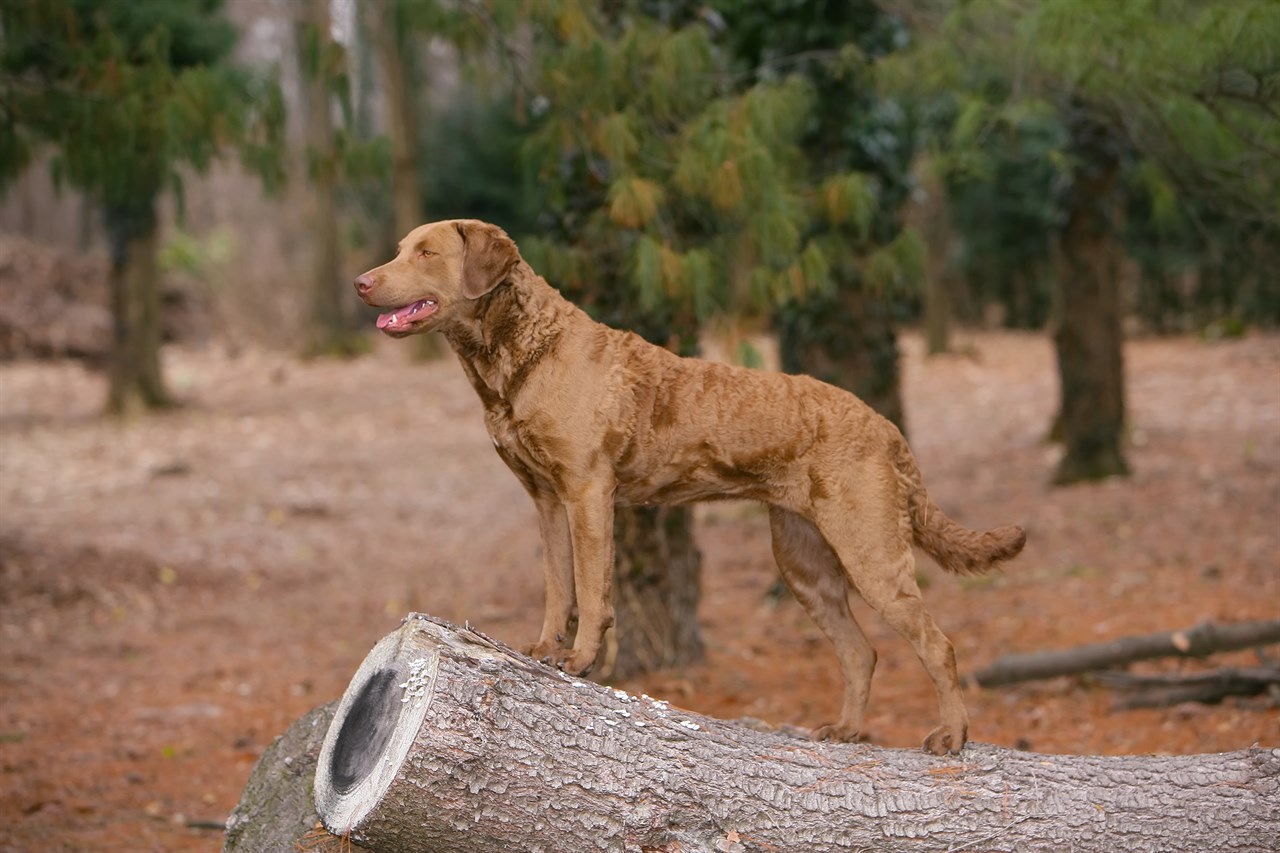Sleeping Requirements and Habits of Chesapeake Bay Retrievers

Understanding the sleeping requirements and habits of Chesapeake Bay Retrievers (Chessies) is crucial for ensuring their well-being and providing them with a comfortable and restful sleep environment. Here's a closer look at their sleeping needs and behaviours.
Adequate Sleep
Like all dogs, Chesapeake Bay Retrievers require an adequate amount of sleep to stay healthy and maintain their energy levels. Adult Chessies typically need about 12 to 14 hours of sleep per day, while puppies and senior dogs may require even more.
Variability in Sleep Patterns
Chesapeake Bay Retrievers' sleep patterns can vary depending on their age and activity level. Puppies and young dogs tend to sleep more than adults, while highly active dogs may need additional rest to recover from physical exertion.
Comfortable Sleeping Environment
Providing your Chessie with a comfortable and safe sleeping environment is essential. They should have a designated area, such as a dog bed or crate, where they can rest undisturbed. Ensure that the area is clean, quiet, and free from draughts.
Regular Schedule
Establishing a consistent sleep schedule can help regulate your Chessie's sleep patterns. Try to maintain a routine by feeding, exercising, and allowing bathroom breaks at the same times each day. This can help your dog anticipate rest periods.
Adjust to Your Lifestyle
Chesapeake Bay Retrievers are known for their adaptability, which extends to their sleep habits. They can adjust their sleep patterns to align with your daily routine, making them excellent companions for families and individuals with varied schedules.
Napping
Chessies may take short naps throughout the day, especially if they are not engaged in physical or mental activities. Napping is a natural behaviour for dogs and helps them recharge for their next bout of activity.
Bed Sharing
Some Chessie owners choose to allow their dogs to share their beds. While this can be a personal preference, it's essential to establish boundaries and ensure that your dog is comfortable and not disruptive during the night.
Comfort Items
Many Chessies have comfort items, such as favourite toys or blankets, that they like to have with them when they sleep. These items can provide a sense of security and comfort.
Health Considerations
Changes in sleep patterns or excessive sleepiness can be signs of underlying health issues. If you notice significant changes in your Chessie's sleeping habits, it's advisable to consult with a veterinarian for a thorough evaluation.
In summary, Chesapeake Bay Retrievers, like all dogs, require a sufficient amount of sleep to stay healthy and energetic. Establishing a consistent sleep routine, providing a comfortable sleeping environment, and accommodating their age and activity level are key to ensuring your Chessie gets the rest they need. By understanding and meeting their sleep requirements, you can help your Chesapeake Bay Retriever lead a happy and healthy life.
Chesapeake Bay Retriever puppies for sale
- Find Chesapeake Bay Retriever puppies for sale in ACT
- Find Chesapeake Bay Retriever puppies for sale in NSW
- Find Chesapeake Bay Retriever puppies for sale in NT
- Find Chesapeake Bay Retriever puppies for sale in QLD
- Find Chesapeake Bay Retriever puppies for sale in SA
- Find Chesapeake Bay Retriever puppies for sale in TAS
- Find Chesapeake Bay Retriever puppies for sale in VIC
- Find Chesapeake Bay Retriever puppies for sale in WA